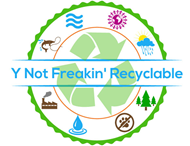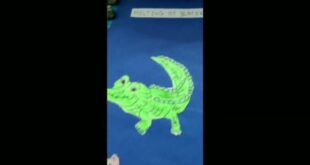[ad_1]
 South Africa has close to 60 000 waste pickers who play a substantial role in the country’s waste management industry. As part of the country’s informal waste sector, they help recover recyclables from household waste streams, as well as waste materials sent to landfill sites.
South Africa has close to 60 000 waste pickers who play a substantial role in the country’s waste management industry. As part of the country’s informal waste sector, they help recover recyclables from household waste streams, as well as waste materials sent to landfill sites.
With the country in a national lockdown due to the COVID-19 outbreak, these waste reclaimers suddenly and unexpectedly found themselves unable to put food on the table due to the fact that economic activity was limited to essential food and health products or services only.
“It became clear that South Africa is not only facing a global health pandemic, but increasingly also the possibility of a humanitarian crisis as these waste reclaimers are no longer allowed to work and earn a living,” says Anton Hanekom, Executive Director of Plastics|SA – the umbrella body representing all sectors of the South African plastics industry – including polymer producers and importers, converters, machine suppliers, fabricators and recyclers.
Despite the fact that many role-players in the plastics industry are suffering financial losses during this time as they had to either close down or greatly reduce their operations, Plastics|SA, the plastics PROs, the other packaging PROs and Packaging SA rallied together to donate funds when the request was made by Packaging SA.
Working in close partnership with the Department of Environment, Forestry and Fisheries (DEFF) and in support of the members of the two associations representing the waste pickers/reclaimers, i.e. the South African Waste Pickers Association (SAWPA), African Reclaimers Organisation (ARO), a total amount of R785, 000.00 was collected within a matter of days. These funds will now be used to purchase electronic food vouchers that will be sent to the collectors who are on the DEFF database via cellphones and can be redeemed at major supermarket retailers.
“We felt deeply affected by the dire and uncertain circumstances these waste reclaimers, who play an important role in the waste management industry, were facing. Because they are not incorporated into the country’s formal waste economy, they tend to lead a hand-to-mouth existence, which means that their income and thus food supply is directly linked to the amount of recyclables they collect on a daily basis, which completely ceased during the period of lockdown ,” says Mandy Naudé of Polyco, the Polyolefin Responsibility Organisation.
Cheri Scholtz of PETCO highlighted the important role reclaimers play in the recovery of PET bottles and other recyclables in South Africa for reprocessing, and in the process, a lifeline for themselves as reclaimers are paid on a daily basis for the product they deliver to buy-back centres and reprocessors. “In the current situation, recycling is not an essential service and therefore the loss of access to collection has created great hardship for reclaimers,” she stressed.

“Waste pickers make valuable resources available for reintroduction into the economy, while saving landfill airspace. In some instances, these informal waste reclaimers are the only people who recover recyclables in municipalities that do not have a two-bin collection system for separation at source. We have a responsibility to support them in these trying times, they are in desperate need to feed their families,” says Adri Spangenberg, CEO of the Polystyrene Association of SA and the Southern African Vinyls Association (SAVA).
The South African Plastics Recycling Organisation (SAPRO) said that the collection of plastics for recycling is a lifeline for many informal waste reclaimers. “At a time when this very livelihood is threatened (because of the lockdown situation) we consider it the least we can do to ensure our collectors and their families have food on the table,” said Johann Conradie, Chairman of SAPRO.
“Aside from supporting sustainable livelihoods, these informal waste reclaimers provide plastic feedstock to our buyback centres and recycling plants. They form the backbone of our recycling economy in South Africa and enable us to achieve the fantastic recycling rates we do!” he added.
Making a difference
“The current COVID-19 crisis has left no sector or industry untouched. Despite facing their own financial and operational hardships, I commend our PROs, every member and individual company who stepped up to the plate without a moment’s hesitation. Irrespective of the amount, every donation made to the waste pickers’ fund or who answered our call to donate to the Solidarity Fund, has helped to make a difference in somebody’s life. Helping one person might not have changed the whole world, but it changed the world for one person.
From the plastics industry’s side, we will do our best to offer them our on-going support during this difficult time in recognition of the important work they do. There is no certainty when the lockdown will end, and we therefore challenge everybody involved in the waste management sector to rally with us and to continue making tax deductible financial contributions to lighten the burden of the waste pickers. Once the lockdown restrictions ease, we will do everything in our power to get the recycling industry operating at full capacity as quickly as possible,” Anton concludes.
Donations can be made into the following bank account:
- PAMDEV NPC (t/a Fibre Circle)
- Account number: 250791749
- Standard Bank | Branch code 005726 | Hillcrest
- Reference: Company Name – Food voucher
Companies can request a tax certificate by emailing their details and proof of payment to payments@fibrecircle.co.za.
Related stories
Source link
Y Not Freakin’ Recyclable Home
 Pollution Climate Change Holocene Deforestation Population Acidification Y Not Freakin' Recyclable
Pollution Climate Change Holocene Deforestation Population Acidification Y Not Freakin' Recyclable




